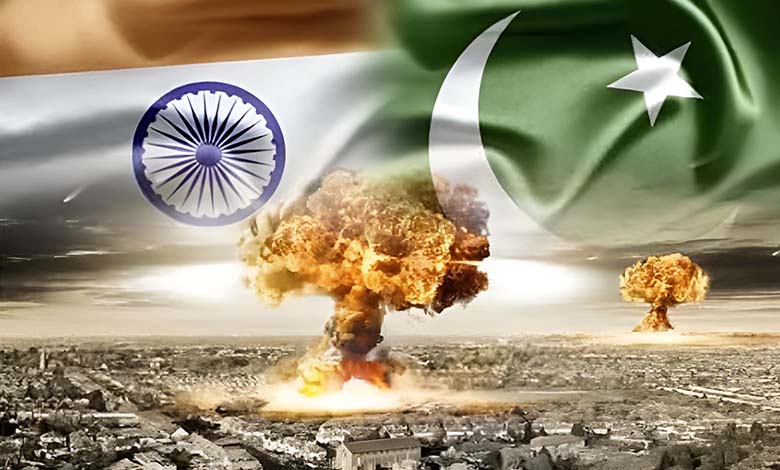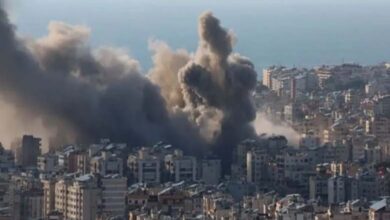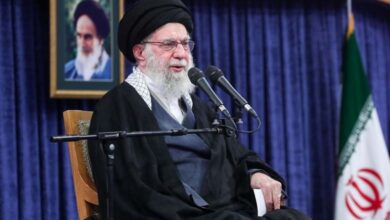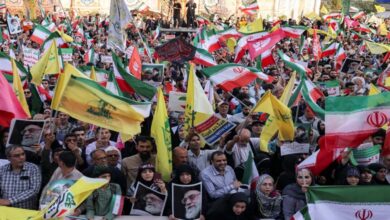Will a Nuclear War Break Out with India? Pakistan’s Defense Minister Gives a Decisive Answer

As tensions between India and Pakistan rise following the deadly attack in Kashmir, Pakistan has sought to calm international fears over the risk of nuclear escalation.
Pakistan’s Defense Minister Khawaja Muhammad Asif asserted that the outbreak of a nuclear war is “highly unlikely,” despite the unprecedented escalation unfolding in the region.
-
The Relationship Between Al-Jama’ah Al-Islamiyah in Bangladesh and the Muslim Brotherhood is Extremely Strong: How?
-
The UAE announces Nawaz Sharif’s victory in the Pakistani elections
No Nuclear War
In an interview with Sputnik, Khawaja Muhammad Asif stressed that the likelihood of nuclear war between India and Pakistan is “extremely low.”
He emphasized that Pakistan does not seek to ignite a military conflict but stands ready to defend itself if attacked.
“We and India are two nuclear powers, and I believe the leaders of both countries understand the danger of slipping into direct confrontation,” he said, adding, “The damage would be mutual and uncontrollable.”
-
Anger at India over comments by a senior official deemed “Islamophobic”
-
Secret report reveals Erdogan family foundation training agents to target India, Russia and China
Asif’s statements came after the deadly attack targeting a bus carrying tourists in Indian-administered Kashmir, which killed 26 people.
New Delhi directly accused Islamabad of sponsoring terrorism, an accusation that Pakistan vehemently denied.
Escalation
Despite the reassurances from Pakistan’s defense minister, the situation on the ground remains worrying.
-
What are the factors that contributed to the spread of armed groups in Pakistan? A report answers
-
Rescue of Members of the Qatari Royal Family from a Bombing in Pakistan
India and Pakistan exchanged fire along their border for the third consecutive night following the attack, according to the Indian army.
The army reported that “unprovoked” small-arms fire from Pakistani positions targeted Indian forces early Sunday morning in the Tammari Gali and Rampur sectors.
Indian forces “responded with appropriate light weapons fire,” the statement added, without mentioning casualties.
Similar incidents were reported over the previous two nights.
-
Judicial Escalation: Imran Khan’s Party Faces Potential Ban in Pakistan
-
Pakistani Police: 3 Afghans from ISIS Group Killed Near Border
Indian Prime Minister Narendra Modi canceled an overseas trip to return home and personally oversee the response, vowing a harsh retaliation against the “terrorist attack.”
He stated that “the time for restraint is over,” signaling a notable shift in India’s tone toward Pakistan.
Additionally, New Delhi threatened to use “all possible options,” including suspending the Indus Waters Treaty, one of the rare surviving agreements between the two rivals.
-
Human rights organization reports the killing of dozens of Afghans by Iranian border guards
-
What Are the Implications of Lifting the Ban on Jamaa Islamiya in Bangladesh?
Major Nuclear Powers
Both India and Pakistan possess significant nuclear arsenals, with India estimated to have around 164 nuclear warheads and Pakistan about 170, according to the Stockholm International Peace Research Institute (SIPRI) 2024 report.
Since both countries rely on nuclear deterrence and have not signed the Nuclear Non-Proliferation Treaty (NPT), any miscalculated escalation could rapidly turn into a full-scale confrontation, threatening global security.
-
Linked to the Muslim Brotherhood: What Do You Know About Al-Jama’a al-Islamiyya in Bangladesh?
-
“Daesh Khorasan” Emerges in Afghanistan
A Catastrophic Scenario
Observers warn that any retaliatory action or overreaction from either side could lead to a miscalculation, especially given the absence of reliable emergency communication channels between the two countries.
Pakistan has, in recent years, developed short-range nuclear missiles (such as the “Nasr”) designed for rapid battlefield deployment, raising additional concerns about the ease of nuclear escalation even during limited conventional conflicts.
Despite the rising tensions, many analysts believe that nuclear deterrence remains intact, as both sides are aware that any nuclear exchange would result in mutual assured destruction.
-
Terrorist Groups Exploit Concepts and Terminologies to Persuade Youth to Join Them… Learn About the Most Important Ones
-
What Happens When a Nuclear Bomb Explodes?
Tensions between India and Pakistan surged dramatically after Tuesday’s attack by gunmen in Pahalgam, in Indian-administered Kashmir, which left 26 civilians dead.
While no group claimed responsibility, New Delhi accused Islamabad of orchestrating the attack.
Pakistan denied any involvement and called for a “neutral investigation” into the deadliest attack against civilians in the Muslim-majority region since 2000.
In retaliation, India imposed diplomatic sanctions on Wednesday: suspending a key water-sharing treaty, closing the main land border crossing, and reducing diplomatic staff.
-
The Muslim Brotherhood and the Taliban: What are the similarities and parallels between the two organizations?
-
Report: Al-Qaeda reorganizes its ranks in Afghanistan through secret efforts… How?
Islamabad, in turn, expelled Indian diplomats, suspended visa services for Indians, closed its borders and airspace with India, and halted all trade.
The UN Security Council urged both nations to “exercise restraint,” recalling that they had fought three wars since the 1947 partition.
Saudi Arabia said it was making efforts to contain the crisis, while Iran offered to mediate a resolution.












